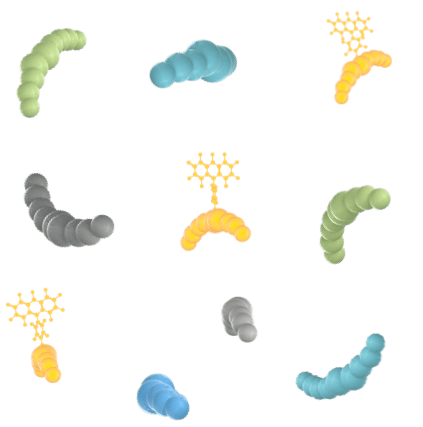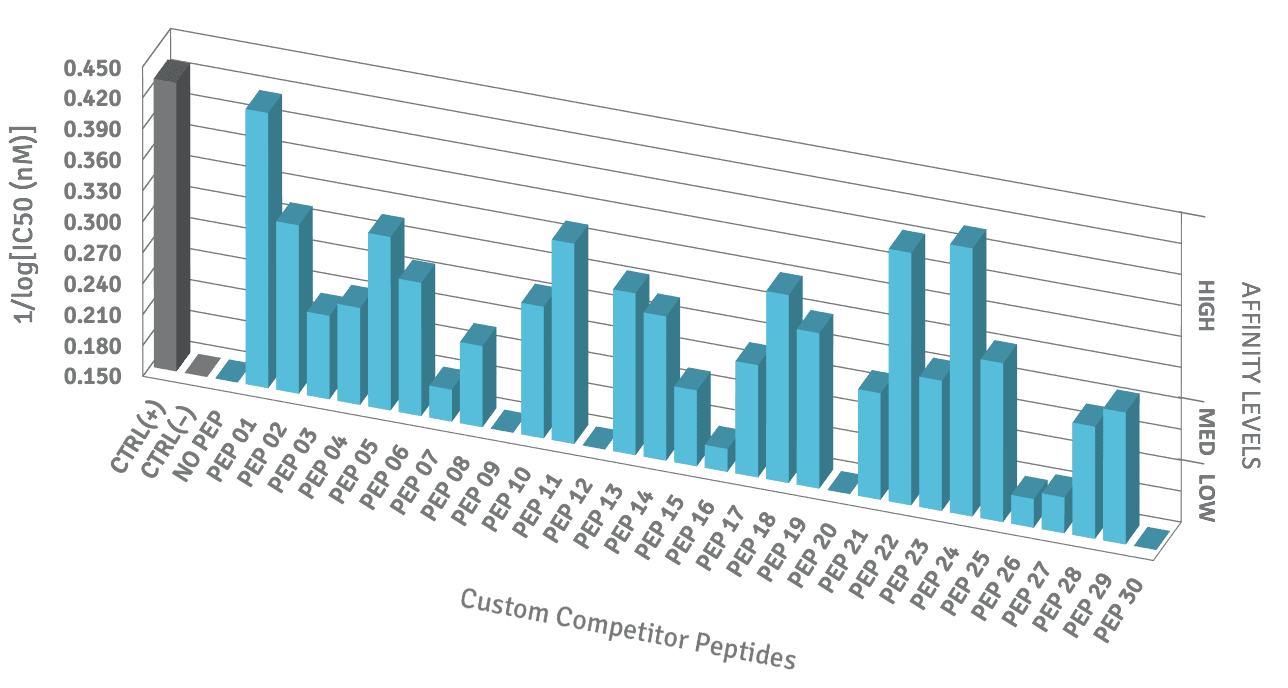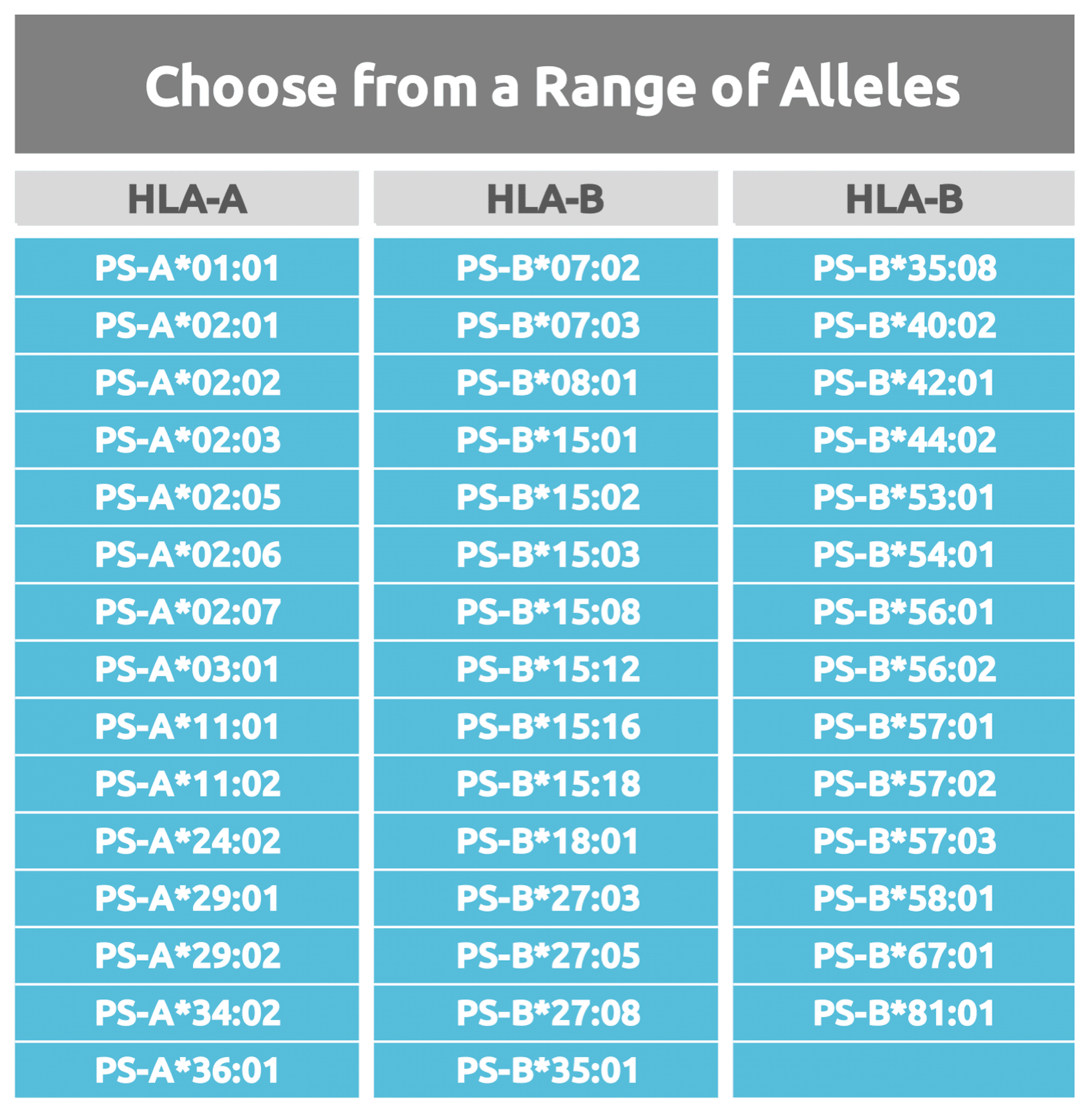Enhance the value of your target protein and increase efficiency and productivity of your vaccine, therapeutic, or diagnostic developments.
Peptide Epitope Screening
Expedite your discovery process, boost the value of your sequencing data, and significantly reduce the risks of your vaccine program by prioritizing epitopes with the greatest potential and highest population coverage producing effective immune responses.

Introduction
The ability of the immune system to recognize virus-infected or cancerous cells has opened the door to treat or prevent various types of diseases. Considering the myriad of possible peptide sequences, coupled with the genetic variability of HLA molecules among individuals, our peptide epitope screening services offer solutions to this problem by using uniquely efficient means of screening immune target molecules that are potentially recognized by T cells. Pure Protein provides essential information to advance your epitope research, by expediting the discovery process, slashing development costs, strengthening your intellectual property, boosting the value of sequencing data, and reducing risks in your development programs.
How it Works
Select a peptide and HLA allele(s)
Select from a broad panel of diverse libraries that fit your target(s) screening strategy with the intention of finding high-scoring peptide epitopes, successfully eliminating negative results, or optimizing your candidates among multiple alleles.
Select high-throughput screening mode
Option 1: 3 point screen
A 3 point screen is most often used by customers to scan large numbers of synthetic peptides with the end goal to obtain a competition score allowing a simple ranking of all candidates. The 3pt screen is primarily focused on the elimination of non-binding peptides. Peptides that exhibit binding above a predetermined threshold score are selected.
Option 2: 4 point screen
A 4 point screen generates a reduced dose-response curve that allows the approximation of logIC50 values based on a limited set of four experimental data points. It is often used by customers as a first pass evaluation to obtain more detailed data sets needed to better evaluate peptide effectiveness. Affinity categories will prioritize your logIC50 values into high, medium, or low affinity binders.
Receive data report
High affinity binding is the critical factor controlling immunogenicity of peptides. Results will be prioritized based on the highest ranked screening hits showing their HLA-type, screening score or approximate logIC50 value. Peptides with high vs low scores (logIC50) are easily identified and ranked in descending order.

Peptide Epitope Screening Results
The two options of high throughput screening modes are presented, showing a 3pt screen with the end goal to obtain a competition score and a 4pt screen that allows for the prioritization of screening values into high, medium, or low affinity categories.

HLA Peptide Epitope Screening List
Download our list of HLA alleles available for our Epitope Screening Service. View all available proteins as well as services in development.
Screening Strategies
Prediction Library
Select a panel of computer predicted and pre-scored sequences and successfully eliminate false positive and negative results generated by these algorithms and produce epitope binding values and rankings that are supported by practical experience.
Focused Library
Select a focused or knowledge-based library of overlapping peptides by investigating smaller protein subsets that are likely to have activity at the target protein which provides a more cost effective avenue in finding a high-scoring peptide epitope candidates among multiple classes of alleles.
Individual Library
Select any starting set of peptide sequences whether from overlapping or separate peptide sequences, as long as the length matches the restriction of the alleles to be investigated in order to identify screening hits that are properly prioritized.
Restriction Library
Select a restriction library to identify the restriction element of an antigen that gave rise to a vigorous T-cell response by creating an overlapping peptide set covering your target domain. Such information will be particularly useful in generating effective epitope vaccines.
Mutational Library
Select a mutational library covering viral escape mutations in order to study the immunogenicity of different clades of viruses. This is achieved by measuring the loss of reactivity against wild-type epitopes to determine a potential sequential accumulation of CTL escape in patients during disease progression.
Scanning Library
Select a positional or alanine scanning library for peptide optimization to refine positive screening hit series by substitution of essential amino acids in order to try to produce more potent and selective peptides which possess properties more adequate in their efficacy.
Advantages
Various approaches are currently proposed to successfully develop therapies for the prevention and treatment of infectious diseases and cancer. Newly identified T cell epitopes can be used to assess target protein immunogenicity or as core building blocks for vaccine development or targets for new immunotherapies.
Pure Protein’s screening assay is a leading platform technology that facilitates high-throughput studies of HLA interactions with epitopes of interest across a breadth of alleles, providing a method of increased efficiency and productivity. With high confidence, the assay rapidly identifies the most likely immunogenic peptides in a set of sequences based on affinity characteristics, and thus can play a key role in the development of novel immunotherapies. It allows the successful elimination of non-binding peptides saving valuable resources and costs. Results provide reliable data that can be used to rank and prioritize epitopes according to their scores. The platform also contributes to increasing the safety and efficacy of new biologics by yielding reliable data that can be used for early assessment of immunogenic epitopes.
Our assays are superior in sensitivity and specificity compared to any other assay formats. Our screening services are consistent and highly reproducible within their testing environment across assay plates, across screening days and, across the duration of entire projects. We are offering customized allele selection among a wide range of HLA alleles and provide results with data easy to interpret in a controlled environment to ensure maximum accuracy. The alleles utilized for the assay are recombinant, truncated soluble HLA molecules that express high stability and are available in large quantities with single specificity characteristics.
Customers primarily use the screening assay to examine large numbers of peptide epitope candidates derived from target source proteins in cancer and infectious disease applications as well as putative epitopes originated from computational prediction models. Although various public and private mathematical models have been developed to predict HLA binding of peptides, the results of these prediction algorithms often times lack in accuracy with respect to physical binding data. As a result, many computational predictions suffer from a significant rate of false-positive and false negative results, and generate epitope rankings that are not supported by physical observations. Therefore, after having defined such predictive epitopes, screening and validation assays are useful in the validation of computational predictions.
Beyond the advantages noted above, screening assays also provide valuable insight into comparative studies by comparing native, unchanged peptides with peptides whose sequences have been altered in order to overcome immune tolerance in cancer vaccine designs, to determine escape mutants in viral variance studies, or to validate neoepitopes from tumor-specific mutations for their increased or decreased binding.
Frequently Asked Questions
What do I get when I send peptides for screening?
High affinity binding is the critical factor controlling immunogenicity of peptides. We will determine the screening score or approximate logIC50 value of your peptide panel depending on the selected screening mode selected and prioritize them based their rankings and their HLA-type association.
What is a 3 point screen?
A 3 point screen is primarily focused on the elimination of non-binding peptides. Peptides that exhibit binding above a predetermined threshold score are selected.
What is a Prediction Library?
A Prediction Library contains a selected panel of computer predicted and pre-scored sequences for screening.
Talk to an expert today
Want to know more about our Screening Systems?
If you’re still wondering if our services are the right technology to advance your scientific discoveries and research, or are looking for some help in defining your project needs, reach out to our experts by visiting the Contact Us page. Someone from our team will get back to you in no time.
Expert advice, whenever you need it!
Related Products & Services
Soluble HLA-A
Choose from more than 35 HLA-A alleles to detect, profile, or monitor antigen-specific immune responses from antibodies to immune cell populations
Soluble HLA-B
Select from a pool of over 65 HLA-B alleles to drive your immunological research to identify antibody immune responses or visualize antigen-specific immune cells.
T cell Epitope Mapping
Discover your next immunotherapy targets utilizing a high-throughput approach to create individual epitope maps on any chosen protein that is potentially recognized by T cells.

